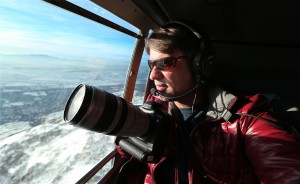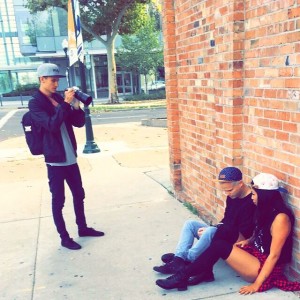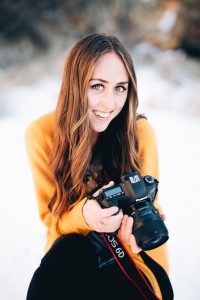[Best_Wordpress_Gallery id=”381″ gal_title=”Student Photography”]
Student photographers may share the same passion, but they don’t all share the same education anymore.
Jeffrey Allred is an adjunct professor teaching photojournalism at BYU and has been a photojournalist for 22 years for the Deseret News and the New York Times.
“Technology-wise, photography has changed a ton,” Allred said.
He said many people claim to be photographers due to the advancements of digital cameras, but there still distinct differences between a self-taught photographer and someone who has studied photography.

Whether student photographers are self-taught or learning from photography professors, photographers agree a certain “eye” is needed for a good photo.
Hunter Fowler is a BYU student majoring in human development. In addition to her studies, Fowler runs a photography business.
“I have been able to have success without all of the classes,” Fowler said.
Fowler said she believes classes can be helpful, but she doesn’t see the need to spend time and money on them.
“With photography, you either have it or you don’t; you either have the eye or not. It is hard to train someone to have the eye,” she said.
For BYU photography major Natalee Briggs, classes are invaluable. “I think a lot of people have a good eye for photography, and that is a really good start, but there is so much to learn about the mechanics of photography,” Briggs said.

The mechanics of photography can be taught in a variety of ways: some students take classes, some learn from YouTube videos.
Jeremy Jensen is a UVU student majoring in marketing who runs a photography business on the side.
“I figured out photography just by doing it,” Jensen said. “I watched a ton of YouTube videos, learned editing techniques and went to a couple of photography workshops. I am taking a photography class now. I’m not closed off to the idea of learning new things, but all the things that we are learning in the photography class I have previously learned.”
BYU photography major Carolee Holt believes people who have taken classes tend to have the technical aspect down and can take more meaningful photos. Holt thinks those without classes can still be successful but will just have to learn the material on their own.
With the invention of Facebook, Instagram, and other photo-sharing mediums, sharing and posting pictures is now just a tap away. Photographers have expanded their businesses with the use of social media. For BYU photography major Katelin Johnson, Instagram can be a great tool, but a degree is still needed.
Alice Cannon, a BYU student majoring in recreational management, was recently the photographer in a photo shoot for the clothing company Shabby Apple. The photo shoot included 10 other vendors collaborating together.

“That one photo shoot reached anywhere from half a million to 750,000 viewers,” Cannon said. “This is only possible because of social media.”
As photo sharing on social media becomes more popular, the number of “Instagram Photographers” increases as well.
The question arises as to how these self-taught and college-taught photographers affect the competitive industry.
Cannon said there is a poorly viewed stereotype that everyone is trying to become a photographer. “To those people I would say, just remember that we all started somewhere and anyone who has the patience and the perseverance to do it can become an awesome photographer.”
Briggs disagrees with the people who see the number of new photographers as a negative thing.
“I think that it is awesome; I love that everyone is into photography,” Briggs said. “People are becoming aware of what is aesthetically pleasing, and what elements a good photograph has. I think this helps photographers because people have a better appreciation for what they do.”




